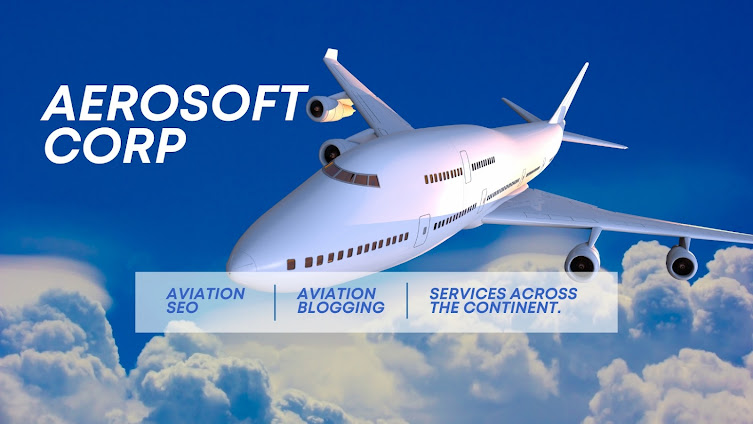"Exploring Public Inquiries: Common Questions and Curiosities About Aviation"
Introduction:
In the dynamic realm of aviation, the demand for well-trained pilots and skilled professionals continues to surge, driven by technological advancements and a growing global population. Pilot training programs play a pivotal role in shaping the future of air travel, adapting to evolving technologies and fostering innovation. As we anticipate the future, it becomes crucial to explore the environmental challenges associated with aviation and the measures in place to mitigate their impact. Additionally, a deep dive into how air traffic control coordinates and manages aircraft movements in busy airspace sheds light on the intricacies of ensuring safe and efficient air travel.
The Evolution of Pilot Training Programs:
Pilot training programs are indispensable in preparing aviation professionals for the challenges and advancements of the industry. Embracing technological progress is essential for enhancing air travel safety and broadening career horizons. Let's delve into how these programs adapt to technological advancements over time:
Advanced Simulators:
Flight simulators have evolved to replicate real-world flying conditions with higher fidelity.
They enable pilots to practise a wide range of scenarios, including emergencies, in a controlled environment.
E-Learning Platforms:
Integration of e-learning platforms provides digital resources for theoretical training.
Flexible and self-paced learning caters to individual learning styles, making education more accessible.
Virtual Reality (VR) and Augmented Reality (AR):
Immersive simulations through VR and AR technologies enhance training experiences.
Complex cockpit environments can be replicated, allowing pilots to interact with virtual elements and practice procedures realistically.
Data Analytics:
Data analytics is increasingly used to assess pilot performance.
Analysis of flight and simulation data helps identify areas for improvement and enhances overall training effectiveness.
Automation Training:
Training programs incorporate education on automated systems, preparing pilots to interact with and monitor advanced avionics.
Environmental Challenges and Mitigation Measures:
The aviation industry is not without its environmental challenges, ranging from air and noise pollution to water usage and biodiversity concerns. To mitigate these impacts, various measures are implemented through policies addressing energy, transportation, food and agriculture, and land use. These measures include:
Energy Policies:
Promoting the use of cleaner and more sustainable energy sources in aviation.
Transportation Policies:
Encouraging fuel-efficient technologies and alternative fuels for aircraft.
Food and Agriculture Policies:
Implementing sustainable practices in aviation-related food and agriculture activities.
Land Use Policies:
Ensuring responsible land use practices to minimise the environmental footprint of aviation infrastructure.
Air Traffic Control: Safeguarding the Skies
Air traffic control (ATC) is the backbone of ensuring safe and efficient aircraft movements in busy airspace. The coordination involves radar and surveillance systems, communication protocols, clearance and routing procedures, airspace designation, and continuous traffic flow management. This orchestrated effort ensures that the vast and complex network of air travel operates seamlessly, prioritising safety above all.
Altitude Considerations in Commercial Aviation:
Commercial aeroplanes typically cruise at altitudes between 35,000 and 38,000 feet, striking a balance between aerodynamic considerations, fuel efficiency, and passenger comfort. Factors influencing this choice include:
Aerodynamic Considerations:
Optimal altitude for aerodynamic efficiency and performance.
Fuel Efficiency:
The chosen altitude provides an equilibrium between fuel consumption and operational costs.
Pressurisation and Oxygen:.
Balancing the need for adequate pressurisation and oxygen levels for passenger comfort.
Avoidance of Space Debris:
Staying within a specific altitude range minimises the risk of encounters with space debris.
Benefits of Joining the Aviation Industry:
For individuals considering a career in aviation, the industry offers a multitude of benefits and opportunities. These include:
Global Opportunities:
The chance to work and collaborate on a global scale, contributing to the interconnectedness of the world.
Technological Advancements:
Involvement in cutting-edge technologies and innovations that drive the industry forward.
Career Diversity:
Diverse career paths, from piloting to air traffic control, aircraft maintenance, and aviation management.
Job Stability:
The aviation industry is a critical component of global transportation, providing job stability.
Competitive Salaries:
Competitive remuneration packages for skilled professionals in various roles.
Safety Focus:
A strong emphasis on safety standards, contributing to a secure and regulated working environment.
Travel Opportunities:
Opportunities for travel and exploration, especially for those involved in flight operations.
As the aviation industry continues to evolve, driven by technological advancements and a commitment to environmental sustainability, the opportunities within this dynamic field are abundant. Whether aspiring to be a pilot, air traffic controller, engineer, or aviation manager, the industry offers a fulfilling and impactful career path. Joining the aviation sector not only opens doors to a world of innovation and global collaboration but also allows individuals to contribute to the safe and efficient movement of people and goods across the skies.
Mohammad Gulam Sadique
Aviation Department
VCard:
https://sadique.vcardinfo.com/
LinkTree:-
https://linktr.ee/sadique.flyingcrewssadique
LinkedIn:-
Asiatic International Corp
Products
Our Service
.jpeg)
Online Airline Career Counselling
Online Airline Career Counselling and Books orchestrated by Captain Shekhar Gupt... Show more

Online Airline Career Counselling
Online Airline Career Counselling and Books orchestrated by Captain Shekhar Gupt... Show more
.jpeg)
Counselling For Airline Pilot Training
Airline Pilot Training By Capt Shekhar Gupta Author / Pilot Pilot's Career... Show more
Gallery
Payment QR













.jpeg)


.jpeg)



.jpeg)





No comments:
Post a Comment